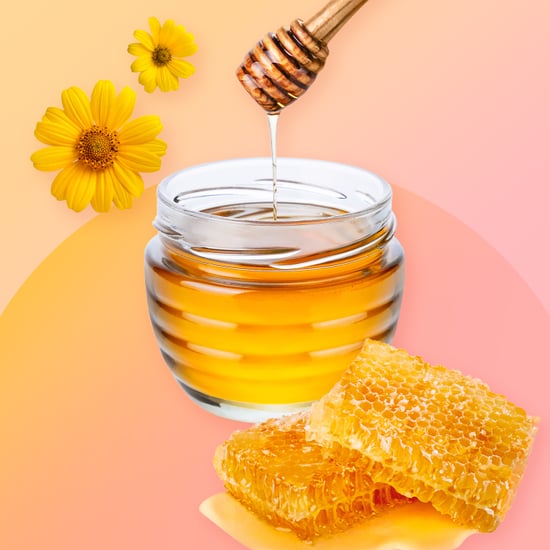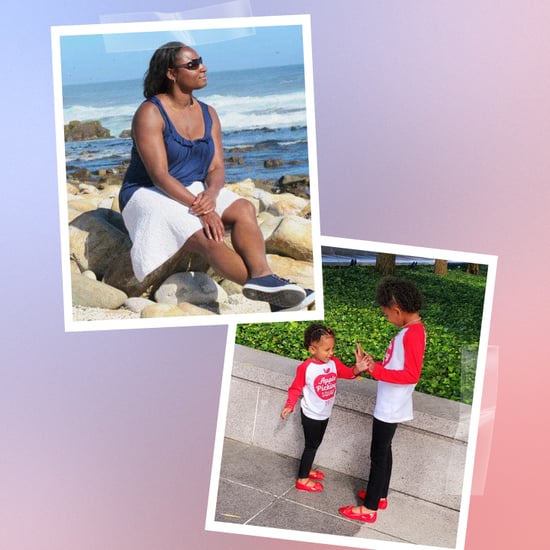How to Talk With Your Kids About Puberty
A Pediatrician and a Psychologist Outline How to Talk About Puberty With Kids

Let's face it: despite knowing how important it is to talk to our kids about how bodies change while going through puberty, those conversations always tend to move to the bottom of our to-do lists. While discussing things like pubic hair and mensuration isn't exactly fun for children or parents, broaching these topics earlier, rather than later, is in everyone's best interest.
It's completely understandable to have feelings of anxiety when it comes to talking about puberty with your little ones. Read ahead to learn what conversations you should be having with your kids and how to make these regular chats as casual as possible.
Why Should Kids Learn the Proper Names For Their Body Parts?
Although there's a tendency to provide your kids with nicknames for their penis or vagina, doing so might not be in their best interest. "It's so common to hear little cutesy names," said Dr. Jean Moorjani, a board-certified pediatrician at Orlando Health Arnold Palmer Hospital in Florida. "From an educational standpoint, kids should learn the proper name for their body parts even before they're verbal. Teach them the appropriate names for their anatomical parts while bathing them. You would refer to their penis just like you would refer to their arm or foot. If you give their penis or vagina a cutesy name, it might make kids wonder if they should be ashamed of those body parts. By teaching kids the appropriate anatomical terms for their body parts it normalizes them.
How Parents Can Use Day-to-Day Conversations to Bring Up Topics Related to Puberty
"Parents should look for opportunities to bring up issues surrounding puberty," advised Dr. Frank J. Sileo, an award-winning author and licenced psychologist from Ridgewood, NJ. "Start early. Perhaps your child read something, saw something in a movie or on TV, or found sanitary pads in your home. These are moments to open up the conversation about puberty. Maintain a positive attitude, be non-judgmental, and remain open to their questions. Allow your child to ask questions and give them honest answers.
Dr. Moorjani agrees that parents should do everything in their power to answer any questions kids have for them. "You can tailor your talks based on your child's age," she shared. "Give children information in small, age-appropriate doses. If a topic comes up and your child has a question that's a great starting point, too. If something they ask throws you off, reframe it and say, 'Oh, where did you hear that word? Or where did you hear about that?' So then you can get an idea of where they're coming from and ensure you're on the same wavelength."
"From an educational standpoint, kids should learn the proper name for their body parts even before they're verbal."
Additionally, Dr. Moorjani points out that conversations surrounding body autonomy and consent can begin at an early age. "One thing that is becoming more and more prevalent that may be something that we didn't discuss when we were kids is just the idea of consent, or the concept that your body is your body," she explained. "This is important to talk to a 4-year-old about, but also a concept you should revisit when you child is 8 or 9 years old."
In this context, Dr. Moorjani brought up the example of hugging relatives. "My daughter is very shy and sometimes extended family members would want to hug her. I would ask her if she was OK with that," she shared. "It might be somebody who she doesn't know very well. Often, she would say no. It could be a little awkward for those involved, but I think it's important to teach kids that they can decide who they want to hug."
How Should I Talk to My Child About Periods?
While you don't need to start speaking with your child about mensuration until they're in school, it's important that they understand the changes their bodies are going through. "A discussion on menstruation should occur before your child has her menses," said Dr. Sileo. "Explain to them what will happen to their body and why. Kids may be discussing this issue with their friends before you discuss it with them. Maintain an open, positive, and accepting attitude toward menses."
"Kids may ask, 'How much will I bleed?', 'Will it hurt?' and other questions. Answer openly and honestly."
Although getting your period often comes with some inconveniences, it's important to keep the discussion positive. "Don't label it things like 'the curse.' This is scary and off-putting. When we create an open environment to communicating, we help with feelings of embarrassment and shame," Dr. Sileo pointed out. "Kids may ask, 'How much will I bleed?' or 'Will it hurt?' among other things. Answer them openly and honestly. Help them understand how tampons and sanitary pads work. Kids may need factual information about menstruation because many of them have had discussions with their friends that contain misleading or wrong information."
Dr. Moorjani suggested talking to kids about their period sooner rather than later, noting that girls tend to get their periods roughly two years after their breasts begin to develop. "Imagine if your daughter goes to the bathroom, has never heard about a period at all, and starts her period," she said. "She's going to be freaked out. It's OK to talk about it a little bit earlier."
Moreover, Dr. Moorjani encouraged parents to have a similar discussion with their children who will not menstruate. "I want my son to know about menstruation," she explained. "I want him to understand it and be compassionate because it can be awkward sometimes once they get older. My son has a sister and a mother. He knows that this is what happens. It's not something to be made fun of for. It's normal!"
How to Talk to Your Kids of the Opposite Sex About Puberty
"Talking about puberty with your opposite sex child can be an uncomfortable experience for you (and for them!). With many families consisting of one parent, moms may have to discuss nocturnal emissions and dads may need to discuss menses," explained Dr. Sileo. "Your tone and comfortability will be very important. Don't be afraid to say something to the effect of: 'I'm so glad you are talking about this with me. My parents never talked with me about this.' Do your research. When you come across as confident about how things work, it will build trust between you and your child."
Dr. Sileo also suggested reaching out to a third party for help, if necessary. "Offer your child the opportunity to speak with a similar gendered individual about puberty," he said. "Assure privacy and confidentiality. Don't take it personally if they aren't comfortable talking with you. This is about them not you."
How to Talk to Your Kids About Masturbation
Although masturbation is perhaps the most awkward topic to broach with your child, discussing it with your older kids is worthwhile. "I'm sure most adults now never had this conversation with their parents," said Dr. Moorjani. "It's like telling a little kid that they have to put clothes on because people are coming over. I wouldn't recommend making children who are 8 or 9 and exploring their genitals feel shameful. But teach them that there is a time and a place and that it should be done in the privacy of their room. It's normal to want to discover your body."







